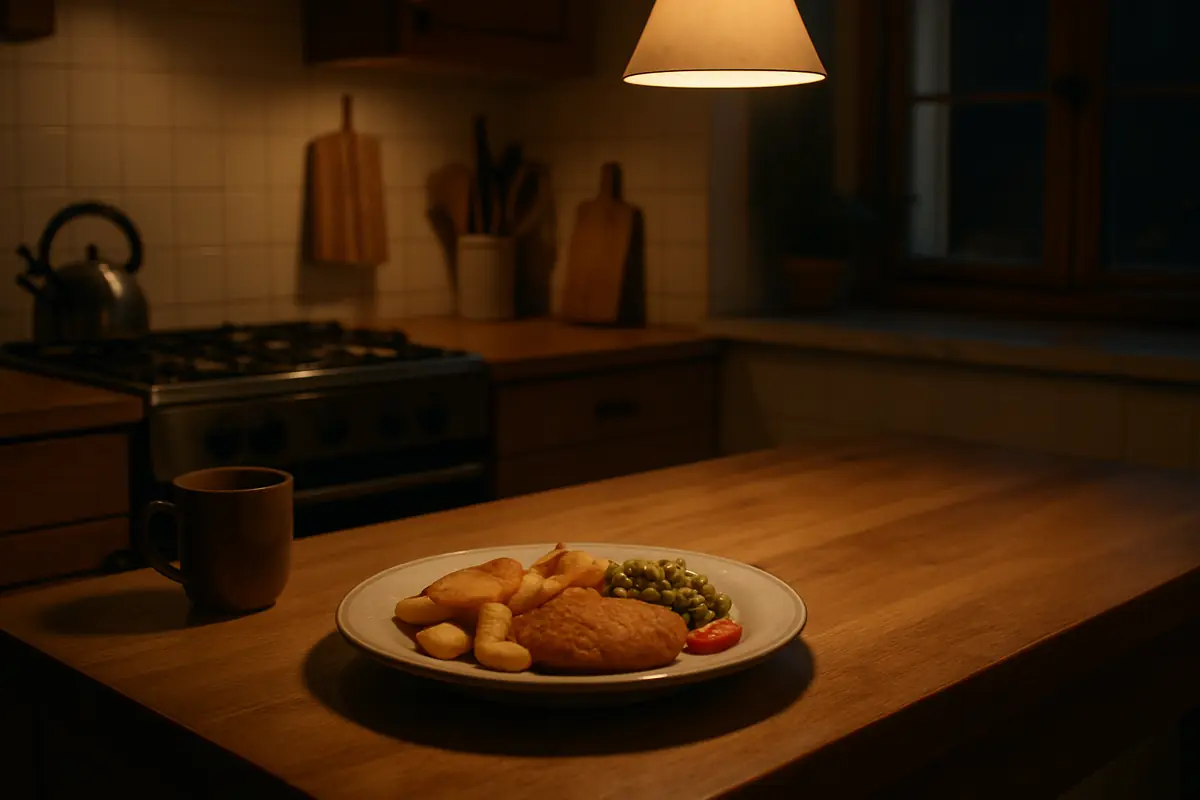The Surprising Science Behind Why Food Tastes Better at Night
Why your late-night snacks hit harder — and what science says about the strange magic of nighttime flavor.

Have you ever noticed how ordinary food — leftovers, toast, even a basic sandwich — tastes dramatically better late at night? It’s one of those quiet phenomena most people experience but rarely question. Yet there’s real science behind why your taste buds seem to wake up just as the rest of the world goes to sleep.
Late-night eating isn’t just a habit — it’s a sensory shift.
Your Senses Become Sharper After Dark
Throughout the day, your brain prioritizes focus, movement, and productivity. Eating is just another task. But at night, your body transitions into a slower, calmer rhythm. With fewer distractions, your senses dial up:
- Taste becomes more noticeable because your brain isn’t juggling deadlines or noise.
- Smell intensifies, especially in a quiet kitchen where every aroma stands out.
- Texture matters more, because there’s nothing rushing you through the meal.
In short, you’re more present — and that presence changes everything.
Hunger Hormones Rise at Night
Your body follows a natural rhythm known as a circadian cycle. One of the quirks of that cycle: certain appetite-related hormones increase after dark. Ghrelin, the hormone that signals hunger, tends to spike in the evening, especially if your dinner was early or light.
When ghrelin rises:
- Food tastes richer
- Sweetness feels more satisfying
- Saltiness hits harder
Your brain is, quite literally, more primed to enjoy eating.
Emotional Comfort Boosts Flavor
Nighttime has a mood of its own. It’s quieter, softer, and often more emotional. Many people use late-night eating as a moment of comfort or reward after a long day. That emotional layer actually enhances flavor perception.
When you’re relaxed, dopamine — the “feel good” neurochemical — flows more easily. Dopamine makes flavors seem more rewarding, especially carbs and fats. So yes, the science confirms it: that warm slice of leftover pizza really does feel like a hug.
Your Brain Loves Familiar Night Foods
Another factor is routine. Most people gravitate to the same types of food at night — warm, simple, nostalgic meals. Your brain likes familiarity; it reduces cognitive load and heightens satisfaction.
Think about it: toast with butter, noodles, cereal, grilled cheese, soup, a quick fried egg. These are low-effort foods with high emotional memory attached. The brain interprets this as “comfort,” which boosts the perceived taste even further.
The Takeaway
Food doesn’t just taste better at night because you’re hungry. It tastes better because your entire sensory system shifts into a different mode — calmer, slower, and more attuned to simple pleasures.
Maybe that’s why the best meals aren’t always the fanciest ones. Sometimes, it’s just you, the quiet of the night, and something warm on a plate.